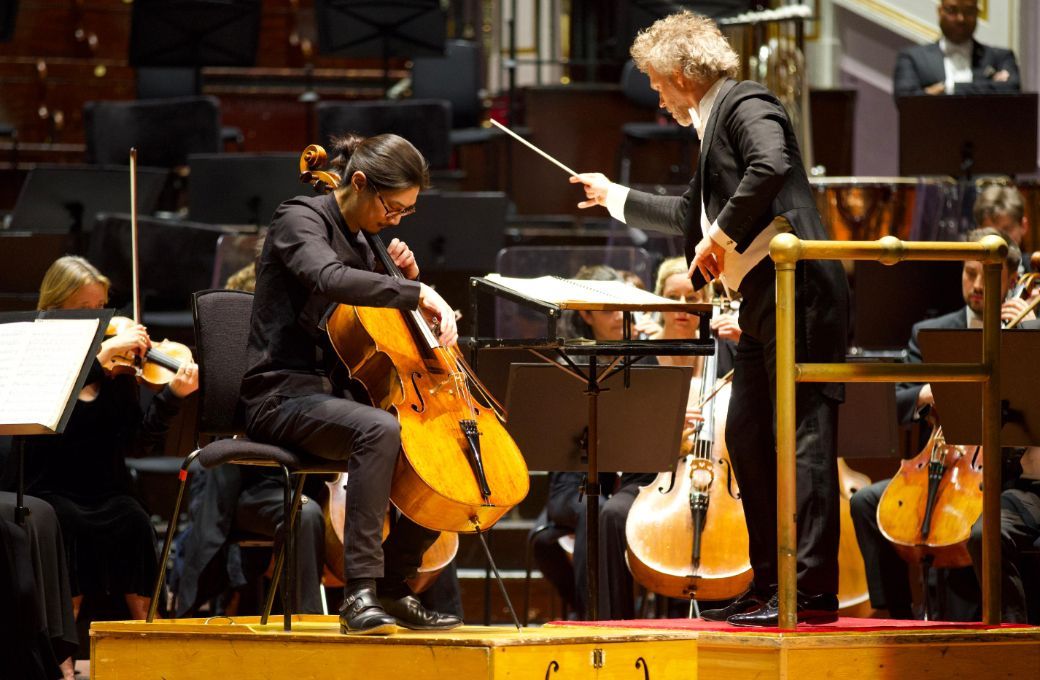It’s always a special event when an orchestra plays a concert with one of their own principals as the soloist, perhaps even more so when that soloist is a relatively new kid on the block. Pei-Jee Ng was appointed Principal Cello of the Royal Scottish National Orchestra as recently as June, and he wasn’t half taking the plunge to make his concerto debut here with the prickly rose of Shostakovich’s First Cello Concerto.

It turned out to be something of a triumph, however. He’s an enormously expressive soloist, with clever phrasing, such as the way he deliberately leaned into the fourth note of the first movement’s D-S-C-H theme, giving it an extra punch just as the motto tailed off. He played with lashings of vibrato, but used it to increase the musical drama in both the staccato brusqueness of the first movement and the lurid grin of the finale. He seemed to weep through his instrument in the soulful central slow movement, playing a cadenza where the pauses and silences were every bit as important as the bursts of manic energy. The cello seemed to emerge out the other end bruised and battered, but grimacing at fate as though in a rictus grin. The RSNO matched him with energetic bounce in the outer movements but with sensational, deep-felt melancholy in the string passages of the slow movement; played with richness but also admirable restraint.
There was no restraint in their performance of Scheherazade, however, and it was all the better for it. Outer movements surged with strength, rippling strings bouncing off powerful brass and sparkling winds. Music Director Thomas Søndergård conducted it like a piece of film music, bringing out the contrasts as though cutting between different scenes, from fast to slow, from large scale to small. The jump-cuts of the first movement were replaced by gradual scene fades in the finale, as the manically busy festival merged into the shipwreck scene and then the blissfully lovely ending, anchored in the sensitive playing of leader Maya Iwabuchi. This cinema-scape also had great storytellers in it, most especially the wind soloists of the second movement, and the strings sounded languid and gorgeous in the third, the violins positively dripping with syrupy luxury at the bottom of their registers.
Lera Auerbach’s Icarus jumped between musical scenes too, but less convincingly. The title came after she had written what she describes as an abstract piece of music, and she spoke engagingly from the stage about how the myth of Icarus serves as a metaphor for the artists striving constantly towards the unattainability of perfection. That wasn’t an obvious component of the music, however. Instead it’s more of a study of contrasted textures, often in an engagingly multi-textured way, such as when busy strings balance block-like brass chords, or with twinkling percussion against lyrical solo moments. No texture got much chance of development, however, so that each section felt like a taster menu for a bigger meal that never arrived. It’s part of a bigger symphony that, we’re told, might feature in a future season, but this Icarus felt like music that was shaking its fist against destiny rather than soaring into the sun.


